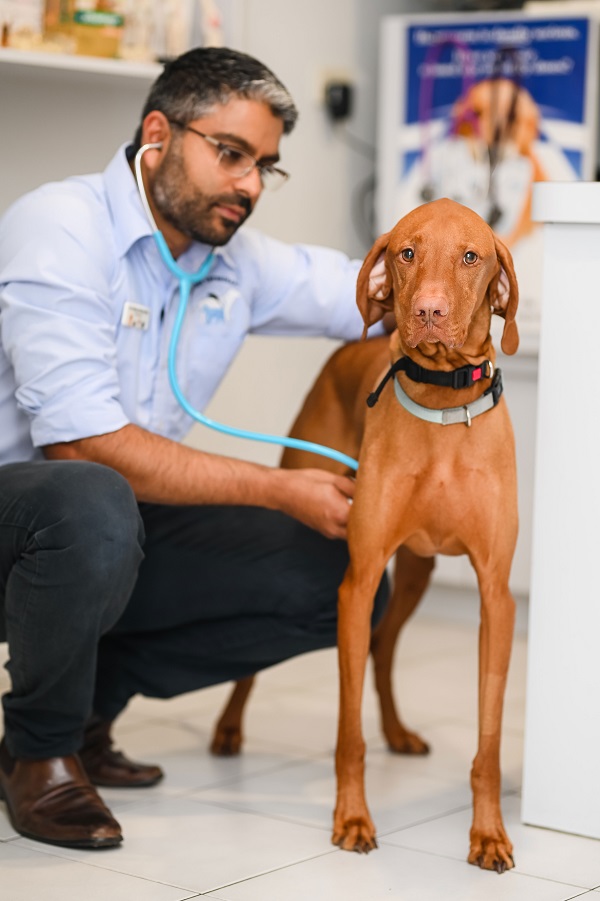
Paws up, who’s going to miss isolation?
The COVID-19 crisis has been stressful on everyone. But have you thought about how it is affecting your pet? Stress projection and changes to routines can have a long-term impact on animal behaviour and health. Veterinarian and UQ graduate Dr Shibly Mustapha (Bachelor of Veterinary Science (Honours) '03) shares his top tips for managing your pet’s stress levels, and for helping them adjust when you go back to work.
Avoid extra stress
We are home a lot more and, as a result, we're invading our pets’ space. And, by simply changing their daily routine, we can stress them out.
We are all carrying extra stress right now and pets are masters at reading body language. They can pick up on any negative emotions and energy that we are emitting. Take care not to pass on your stress.
If your pet does suffer from anxiety, there are several remedies that you can try, including plug-in diffusers with pheromones that create a sense of calm.
If infected, stay away
If you are COVID-19 positive, it's best not to have close contact with your pet and let someone else do the cuddling for you instead.
While there is no scientific evidence to suggest that our pets spread the virus, people who are infected are being advised to distance themselves from their pets too.
Food for thought

When we spend more time at home with pets, we tend to give them a few extra treats along the way. Be mindful not to overfeed, and limit those treats. In fact, if you are unable to maintain your pet's usual activity levels, then you should probably reduce their food intake by 20 per cent.
Now is not the time to experiment with new diets or try to budget by feeding your pet low-quality pet foods.
Any sudden changes in diet could potentially lead to gastrointestinal upsets and more vet bills.
Nasty parasites
Even if your pets are only in your home and garden, it is still very important to maintain regular parasite prevention.
Parasites can still infest your pet and, worse still, some can be passed on to you and your family. Nobody wants to be in isolation with unwanted creepy crawlies.
Hope for the best, prepare for the worst
Vet clinics are open as they are an essential service. However, some other countries have placed heavy restrictions on veterinary services, allowing them to offer only emergency and critical care.
If your pet is on regular medication for a chronic health condition, such as skin allergies or arthritis, then you need to ensure that you will have enough to last about one month. Although no supply chain issues exist at the moment, it’s good to be prepared in case your local vet clinic becomes inundated with emergencies, or if they are instructed to close in the near future due to a second wave of COVID-19 infections.
Most vet clinics are offering remote-style consultation, using video-conferencing technology. This is a great way to reduce foot traffic to the vet clinic and also reduce stress levels for your pet.



